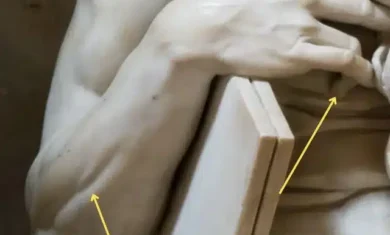I’ve talked on here a lot about good decisions versus good outcomes (and yes, I still think the Seahawks made a good decision). This recently came up for me again with a plumbing issue in our house.
While my wife was in the upstairs bath one evening, I swore I heard a drip of water on the ceiling of the bathroom below her. I was concerned enough that I called a plumber friend of ours and he came out the next day to check it out.
There was no evidence of water on the ceiling, and he said it’s common in older houses for pipes to expand and “pop” repeatedly over the course of a few minutes that was likely what I heard. He was not 100% sure, but thought it was quite likely.
Our options then were two-fold:
- Assume it was the popping pipe, and off he goes.
- We cut into the ceiling to see for sure, and then deal with the various repairs after.
Given his confidence, option 1 was clearly the better choice, as option two would have been a messy (and marginally expensive) route to take.
Yeah, it dripped
I didn’t notice the sound again, but a few weeks later a water ring showed up on the ceiling. Yep, it was dripping. The plumber came back out, cut the ceiling, made the repairs, and now all is solved.
Even though he was wrong during his initial visit, I still think we made the right decision. It turns out we were wrong, but given the information at the time it was a good move to make.
If I tied the decision and outcome closely together I might think “well, this guy made a bad decision, so it’s time to find a new plumber“, but that’s not the case. I think his initial decision was wise, but just ultimately the odds didn’t work out for us.
Keeping decisions and outcomes separate in your head can be a tough thing to do, but it leads to better decision-making in the future. If this plumber just cut into walls every time there might be a small chance of an issue, he’d end up with a lot of people making unnecessary drywall repairs to their houses. His experience gave him the odds of an issue, and his judgement was based on that.
A pair of Aces
Annie Duke uses poker as an example in many of her thoughts on this, and that fits in well here. Suppose you were playing Texas Hold’em and got a pair of Aces to start — perfect! You push hard in that hand, but now imagine that you still lose the hand (which is somewhat unlikely, but possible).
Did you make a bad decision to stay in with two Aces? Of course not. That was a good decision with a bad outcome. However, if you tie those together too much, the next time you get two Aces you might think “well, last time I had two Aces I stayed in and lost, so I’d better just fold now“. That’d be silly, but that’s what we’re talking about here.
Good decisions can lead to bad outcomes (and vice-versa), but as long as your decision-making was sound, you can feel good about what you did even if it didn’t turn out quite right.




